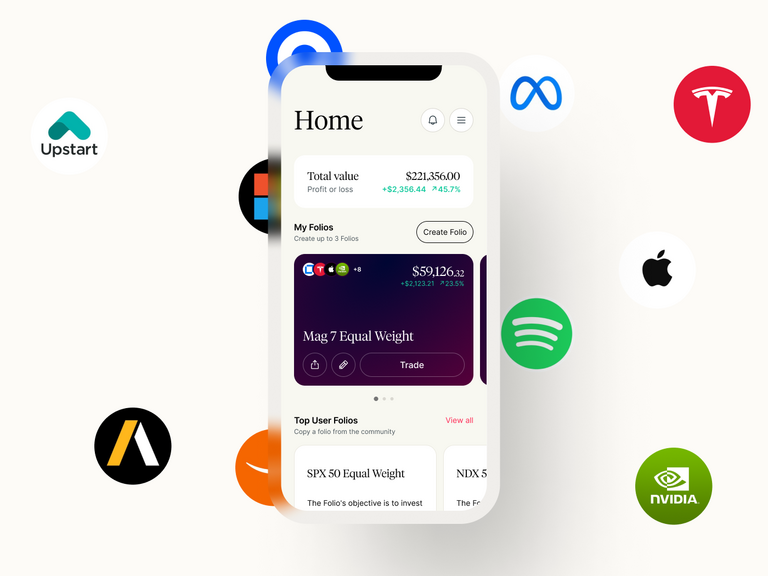Oracle is behind the likes of Amazon [AMZN], Alphabet [GOOGL] and Microsoft [MSFT] when it comes to artificial intelligence (AI), but recent announcements could grow its market share. By implementing generative AI across its tech stack, Oracle will be able to better help customers implement large language models (LLMs).
Cloud provider Oracle [ORCL] has been upgrading its product suite with a range of AI tools to better compete with the major cloud players.
At the end of January, the company added more generative AI capabilities to its Fusion Cloud Applications suite, which provides software for finance, HR, sales and marketing teams.
“We are embedding AI across all layers of the technology stack by integrating generative AI into our applications and converged database, and offering new LLMs and managed services — all supported by a fast and cost-effective AI infrastructure,” said Greg Pavlik, Oracle Cloud Infrastructure’s Senior Vice President of AI and Data Management.
Nine ‘super investors’ bought $508.2m of Oracle shares in Q4 2023, while eleven sold $142.1m worth.
Buyers included Jim Simons, Founder of Renaissance Technologies, who started a new position, buying approximately 930,000 Oracle shares, having previously exited the stock in Q3 2022.
Sellers included Ken Griffin, Founder CEO and Co-Chief Investment Officer (Co-CIO) of Citadel, who cut his stake by 23%, offloading approximately 225,000 shares, and Ken Fisher, Founder, Executive Chairman and Co-CIO of Fisher Investments, who trimmed his holding by 1.9%, selling approximately 364,000 shares.
Oracle’s Infrastructure Gives It a Competitive Edge
Many businesses struggle to deliver generative AI successfully. A challenge they often face is being able to customise and integrate LLMs into tech stacks. Oracle is offering a solution to this problem with a full-stack approach. This means AI customers won’t need to move their data to separate databases.
“Oracle is able to deliver AI at scale because it’s managing all the infrastructure, unlike some competitors that depend on other infrastructure providers. This will be particularly important as more users adopt AI and cost and speed become a potential issue,” Rebecca Wettemann, CEO and Principal Analyst at independent research firm Valoir, tells OPTO.
Wettemann explains that one advantage of this is that customers’ confidential contracts can be kept within its infrastructure and so don’t have to be sent to a third party, potentially putting confidential information and data at risk.
This will be particularly of benefit to HR, finance and customer experience teams, she adds.
Oracle Follows Amazon and Microsoft to Japan
Last month, Oracle announced that it intends to spend more than $8bn in Japan over the next 10 years. Plans include building additional data centres to meet future cloud and AI demand.
The announcement follows a $2.9bn commitment in Japan’s AI and cloud infrastructure from Microsoft [MSFT] earlier in April, while Amazon’s [AMZN]cloud unit is to spend ¥2.3trn in the country between now and 2027.
Oracle’s plan should help it to remain on a competitive footing with the likes of Amazon and Microsoft, and, possibly, eat into their market share. Oracle is currently playing catch-up — according to Synergy Research Group, the company’s share of the cloud spending market by the end of 2023 was less than 5%, dwarfed by Amazon and Microsoft’s combined share of more than 50%.
“This investment strengthens Oracle’s competitive edge in the Asia-Pacific region and sets a precedent for how global cloud giants can effectively respond to the nuanced needs of diverse markets,” noted Steven Dickens, Vice President and Practice Leader at Futurum Research.
Oracle Share Price Could Be Lifted by AI Demand
Since hitting a 52-week high on 21 March, the Oracle share price has pulled back 10.9% as of 7 May. The stock is up 24% in the past year and up 13% year-to-date.
Other than holding Oracle shares outright, another way to gain exposure to the stock is through thematic ETFs.
The Global X Artificial Intelligence & Technology ETF [AIQ] has Oracle as its tenth-biggest holding, with a weighting of 3% as of 6 May. The fund is up 41% in the past year and up 7.9% year-to-date.
The Roundhill Generative AI & Technology ETF [CHAT] also holds Oracle at a weighting of 3%. The fund is up 34.1% in the past year and up 12.5% year-to-date.
Disclaimer Past performance is not a reliable indicator of future results.
CMC Markets is an execution-only service provider. The material (whether or not it states any opinions) is for general information purposes only, and does not take into account your personal circumstances or objectives. Nothing in this material is (or should be considered to be) financial, investment or other advice on which reliance should be placed. No opinion given in the material constitutes a recommendation by CMC Markets or the author that any particular investment, security, transaction or investment strategy is suitable for any specific person.
The material has not been prepared in accordance with legal requirements designed to promote the independence of investment research. Although we are not specifically prevented from dealing before providing this material, we do not seek to take advantage of the material prior to its dissemination.
CMC Markets does not endorse or offer opinion on the trading strategies used by the author. Their trading strategies do not guarantee any return and CMC Markets shall not be held responsible for any loss that you may incur, either directly or indirectly, arising from any investment based on any information contained herein.
*Tax treatment depends on individual circumstances and can change or may differ in a jurisdiction other than the UK.
Continue reading for FREE
- Includes free newsletter updates, unsubscribe anytime. Privacy policy





